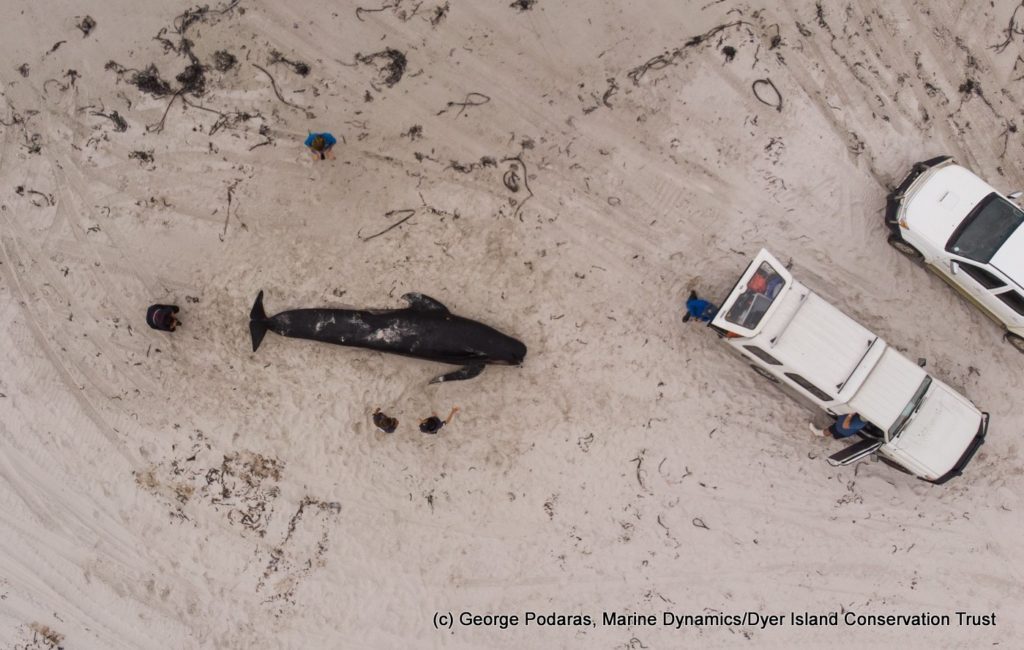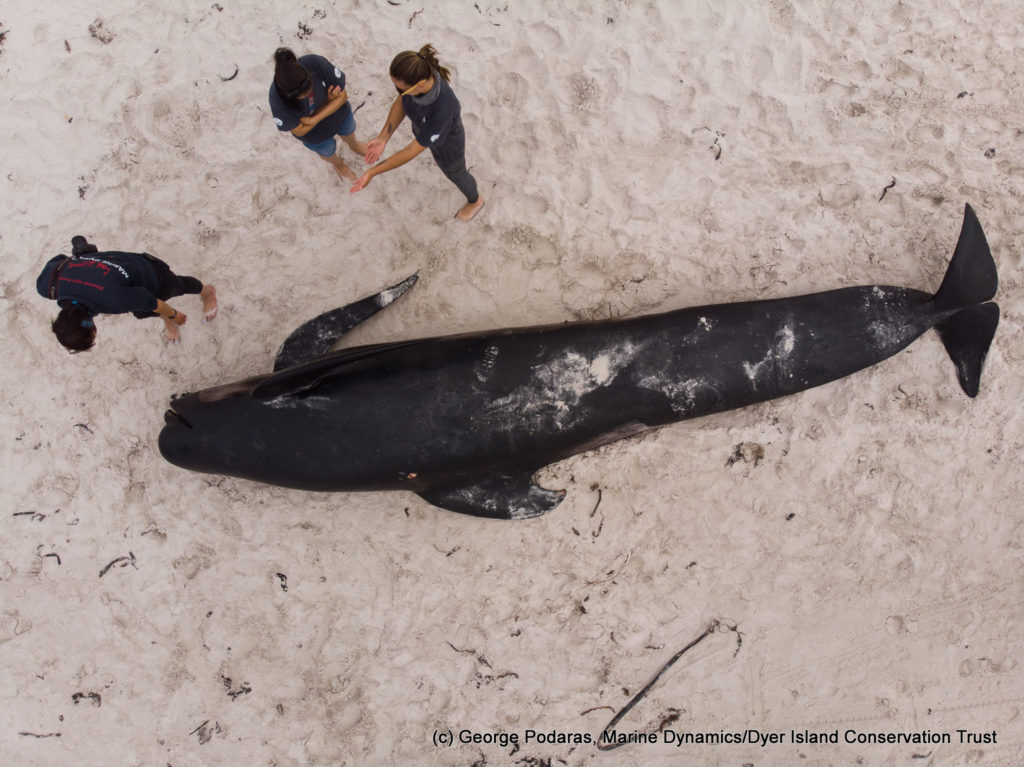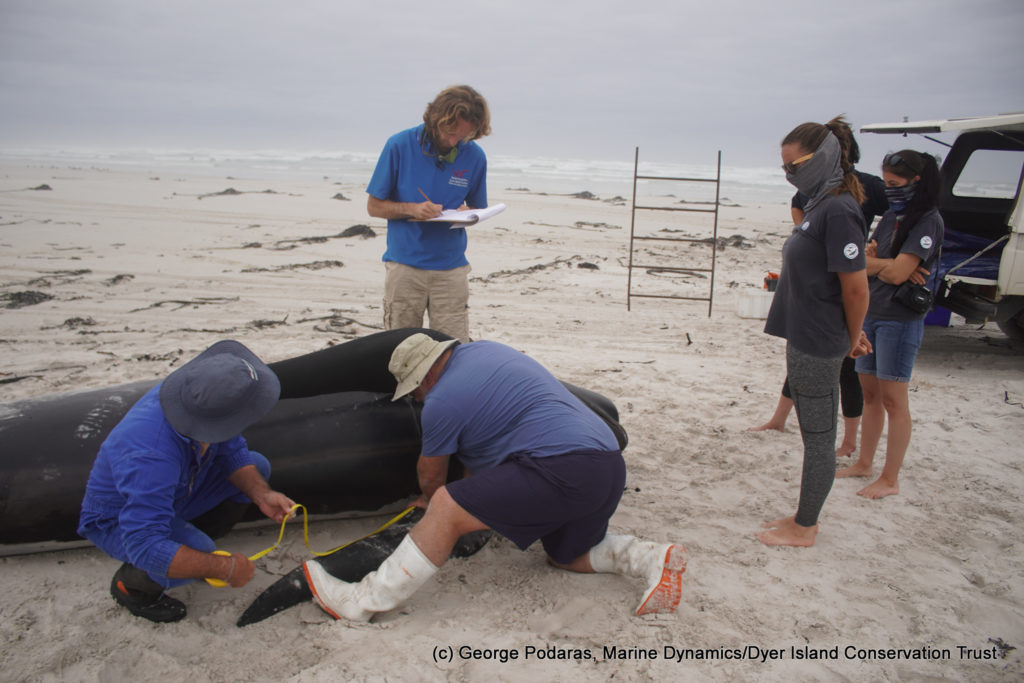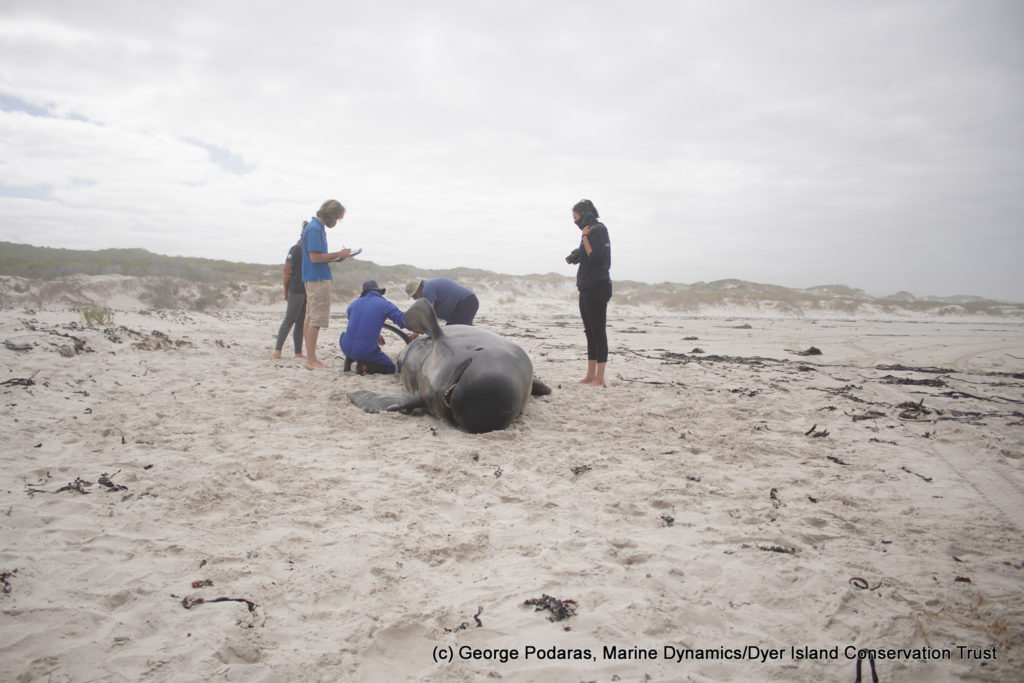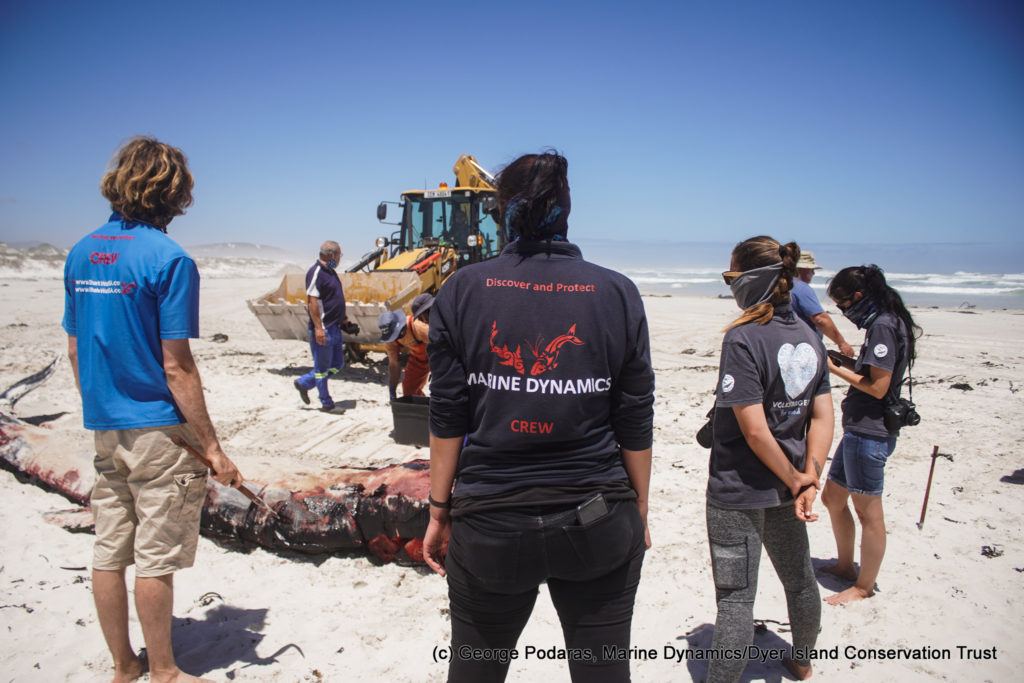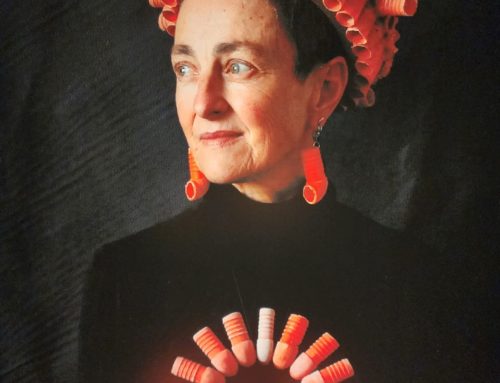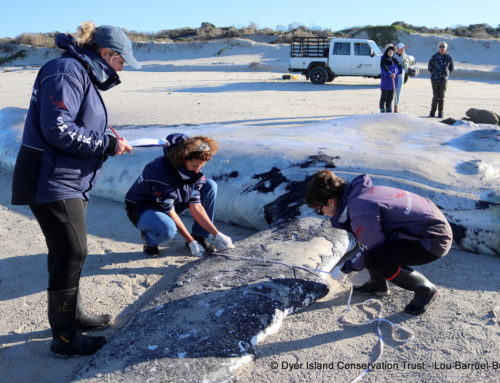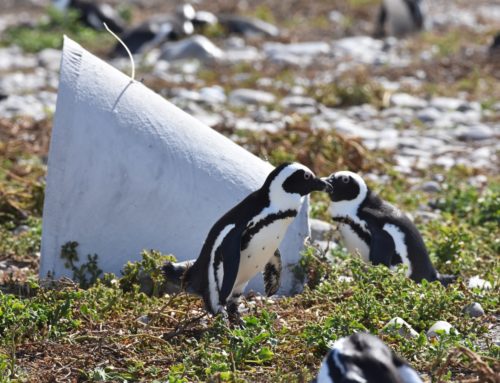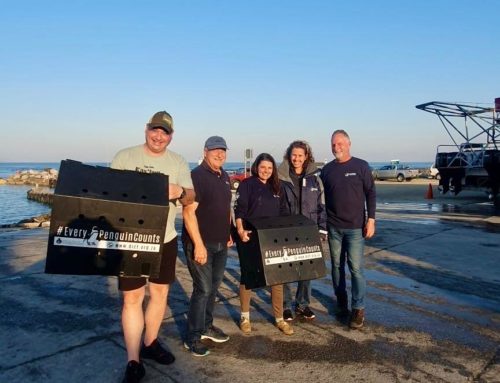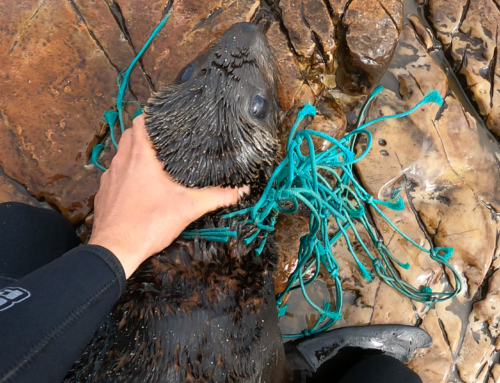~ Ralph Watson, Marine Biologist, Marine Dynamics/Dyer Island Conservation Trust
On the 28th of January, the Dyer Island Conservation Trust (DICT) received a report of a whale stranding near Pearly Beach. Dickie Chivell and Ralph Watson were sent out to investigate and arriving on-site it became clear this was no ordinary stranding. The whale was a long-finned Pilot whale (Globicephala melas) , and it is not often seen on South Africa’s beaches.
Pilot whales are known to occur far out to sea where the waters are deeper, especially in colder, almost polar waters. They are a highly social species and are usually found in social units of 10 to 20 individuals, but can even be seen in the hundreds. They get their name from their behaviour of following their leader, or “pilot” when travelling far distances. Pilot whales have a very distinct bulb on the front of their head, which is known as a melon. This assists with echolocation and communication and is thus an important part of hunting for them. They will often dive to 200 to 600 meters deep to hunt fish, squid, and shrimp.
DICT is part of a wide-ranging stranding network and quickly informed their collaborators at Department of Environment, Forestry and Fisheries (DEFF) and the Mammal Research Institute – Whale Unit in Hermanus. The next day DEFF and the MRI-WU sent out teams to perform an on-site necropsy, with the help from the Overstrand Municipality and the marine biologists from Marine Dynamics and DICT (Ralph Watson, Sandra Hoerbst, Kelly Baker, and Alina Pryazhkina). The purpose of the necropsy is to collect measurements, samples and hopefully find out the cause of death.
The Pilot whale was a male, measuring over 5.5 meters long, with no distinct markings on the outside that revealed any possible cause of death. The team from DEFF recovered important samples (skin, blubber, organs) and the whole skeleton. An x-ray of the head could potentially reveal damages to the auditory system of the animal, which might have caused it to strand, but at time of writing the cause was not evident.
Marine mammals are protected in South Africa under the Living Resources Act, and standings such as these provide scientists with incredibly vital information on their health, life-history, and ecology. DICT is part of the Overberg Stranding Network. Should you come across a stranded animal in the Overberg region, please contact us at 0725987117.
